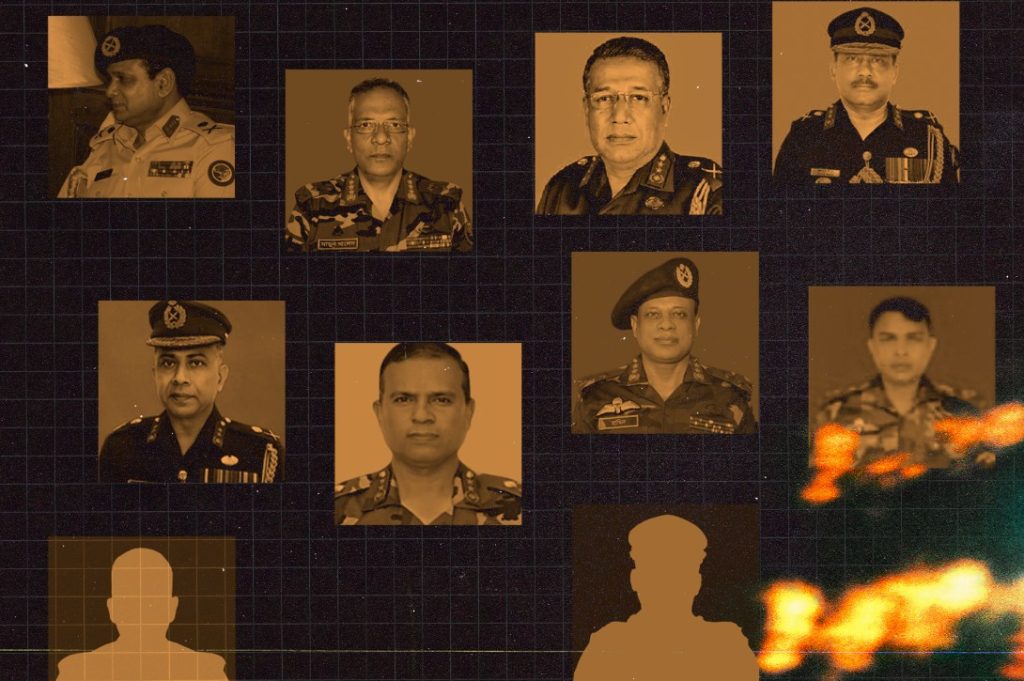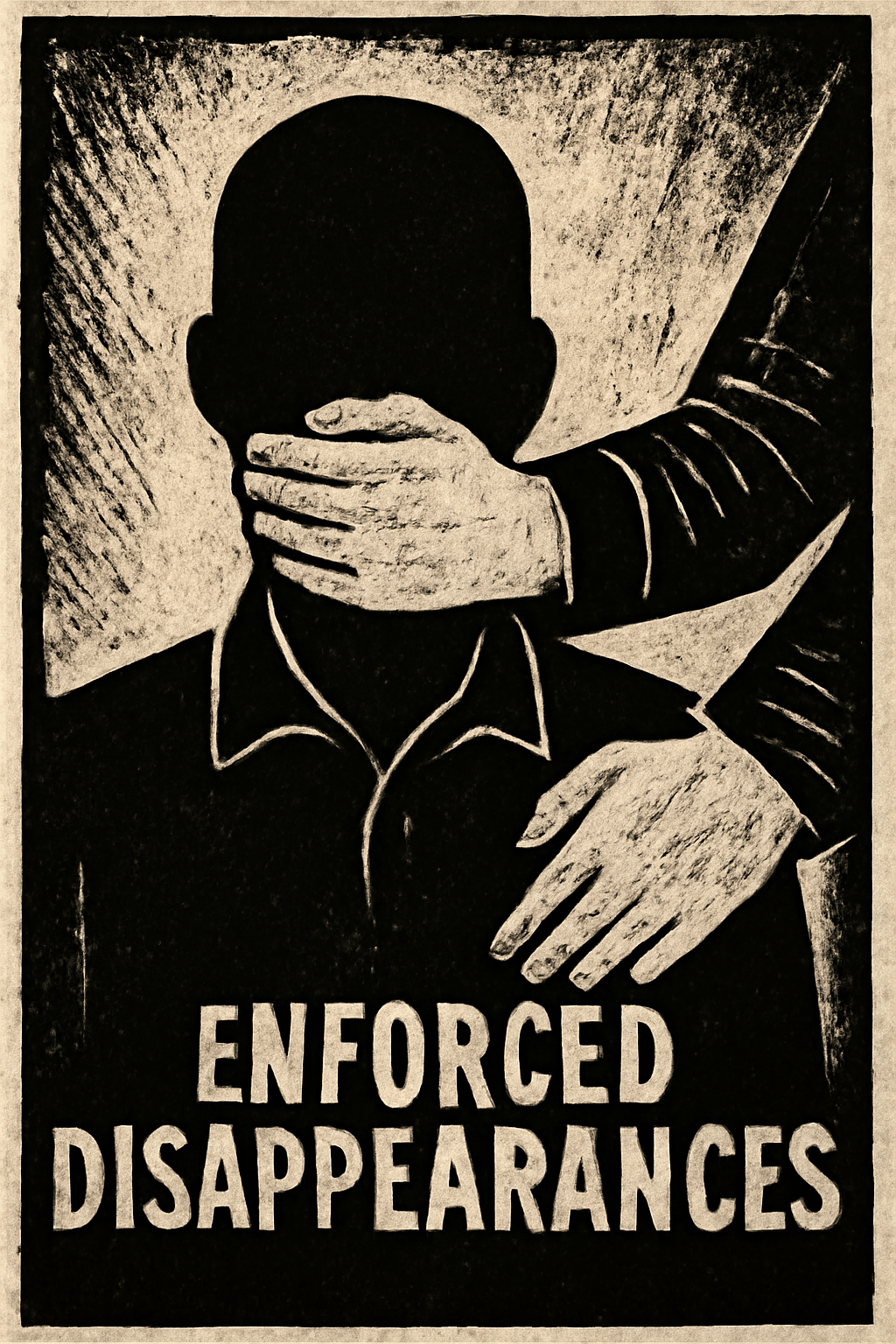At least 10 Bangladesh Army officers, accused of involvement in enforced disappearances during the tenure of former Prime Minister Sheikh Hasina, have reportedly fled abroad despite court-issued arrest warrants, revoked passports and official travel bans.
The officers, including several former heads of the Directorate General of Forces Intelligence (DGFI), managed to slip out of the country before legal actions could be enforced, according to findings by the Commission of Inquiry on Enforced Disappearances, reports Netra news.
Human rights lawyer and Commission head Nur Khan Liton confirmed the absconding of the officers, saying, “We have a lot of evidence [of such cases].” The suspects include Lieutenant General Molla Fazle Akbar, Major General Sheikh Mamun Khaled, Lieutenant General Md. Akbar Hossain, Major General Md. Saiful Abedin, Major General Md. Saiful Alam, Major General Ahmed Tabrez Shams Chowdhury, Major General Hamidul Haque, Colonel Mahadi Hasan, Warrant Officer Md. Ziaur Rahman and Warrant Officer Imrul Kayes.

The first seven individuals on the list served as DGFI chiefs between 2009 and 2024—overlapping entirely with Hasina’s near-16-year uninterrupted rule. This period saw widespread allegations of state-sanctioned enforced disappearances, mostly targeting opposition members, particularly from the BNP.
One such victim was Ismail Hossain Baten, a businessman and BNP leader, who was picked up by RAB operatives from Dhaka’s Mirpur on 19 June 2019. His daughter, Anisha Islam Insa, says, “Whenever I see that black uniform, I think of them as black-clothed hyenas… monsters in the guise of men.”
Following the fall of Hasina’s government in August last year, the interim administration initiated a formal investigation. The Ministry of Home Affairs imposed travel bans on 42 law enforcement personnel, including officers from DGFI, RAB, CTTC, DB and the army. Arrest warrants were also issued by the International Crimes Tribunal in January.
Despite these restrictions, several of the accused evaded authorities. “We have informed the Chief Adviser about this. We also had these questions for the Army Chief,” said Khan. He suggested that weak enforcement and potential collusion allowed the accused to escape. “It is possible they left via the land border with India, or even crossed airport immigration with the internet turned off.”
The Commission has written to Army Chief General Waker-uz-Zaman seeking clarification on the missing officers but has received no substantive response. The absconding of key suspects has dampened hopes for justice among victims’ families. “If they submit the report in three months, maybe we’ll know what happened to my father,” said Insa. “But we still don’t sleep at night. The man we filed a complaint against is still walking free.”
Her mother, Nasrin Akter Srithi, added, “My son is traumatised. We no longer laugh. We’re just waiting endlessly.”
Legal experts warn that the failure to prosecute those involved could have long-term consequences. “If justice is not ensured, in future, others can feel emboldened to participate in these crimes,” said Supreme Court lawyer Manzoor Al Matin. “The credibility of the armed forces is also at stake.”
He further urged transparency, demanding that the government publicly disclose which institutions were asked for information and how they responded. “No force or government can avoid this responsibility,” he added.
Colonel Md. Shafiqul Islam of the Military Operations Directorate said in a 3 July press conference at Dhaka Cantonment that legal action would be taken against army personnel found responsible. The Inter-Services Public Relations (ISPR) has yet to respond to formal media queries regarding the absconded officers.


